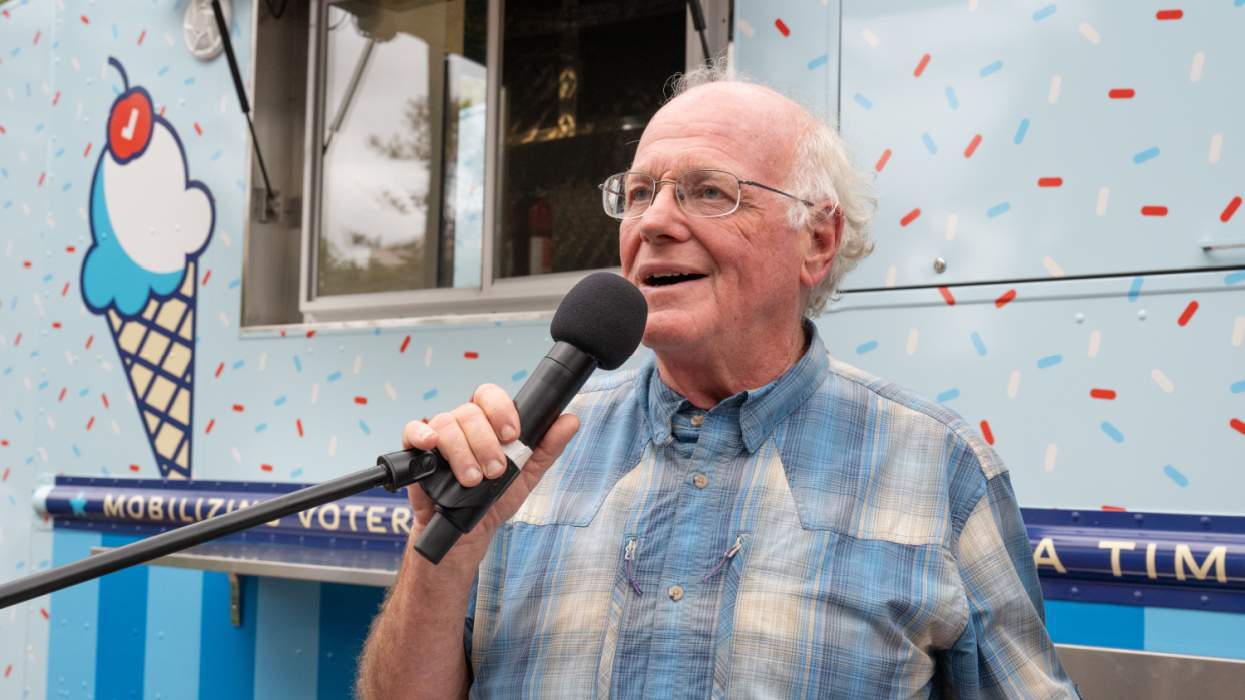A new report from PEN America reveals a dramatic escalation in book bans, with over 4,000 instances recorded in the first half of the 2023-2024 school year alone — a stark increase from the previous year. The bans, sweeping across 42 states, have disproportionately targeted books dealing with sexual violence, LGBTQ+ themes, and racial issues.
The United States is witnessing an unprecedented wave of censorship in public schools, with books addressing LGBTQ+ topics (transgender people in particular) and sexual violence facing the brunt of the bans. According to PEN America, the censorship efforts are fueled mainly by misuse of obscenity laws and inflammatory rhetoric, labeling educational materials as “pornographic” or inappropriate for young readers.
Keep up with the latest in LGBTQ+ news and politics. Sign up for The Advocate's email newsletter.
Despite the grim outlook, resistance against these bans is growing. Students, educators, and authors across the country are mobilizing, forming coalitions to challenge the bans in court, and organizing public demonstrations and read-ins. In Connecticut, for example, over 100 students marched to protest the removal of LGBTQ+ books from their school libraries.
PEN America notes that the books being banned are crucial for helping young people understand themselves and others nuancedly, adding that censorship deprives them of the chance to explore real-world issues through literature.
The report highlights the legal battles unfolding as several states have enacted laws that restrict discussion of gender and sexuality in education. These laws, often vague in their language, have led to a chilling effect in classrooms and libraries. Educators fear repercussions for teaching material that some might deem controversial, thus limiting academic freedom and critical inquiry.
During a PEN America-hosted press call Tuesday, Kasey Meehan, program director for Freedom to Read at PEN America, outlined the latest findings from their report, explaining that these bans, driven by state legislation, often target books dealing with LGBTQ+ issues and racial themes. Laney Hawes, cofounder of the Texas Freedom to Read project, shared insights from Texas, where recent laws and local school board actions have led to the removal of hundreds of books based on the input of only a few individuals.
Reagan Miller, director of development for Florida Freedom to Read, spoke about similar issues in Florida, highlighting how legislation has led to significant book removals as districts act preemptively to avoid accusations of noncompliance.
From Alaska, Quinlen Schachle, president of the Alaska Association of Student Governments, provided a student perspective, noting the disproportionate effect of bans on LGBTQ+ students and the lack of student representation in decision-making processes. Together, these panelists emphasized the organized nature of censorship efforts and the importance of community and student activism in combating educational censorship and advocating for the freedom to read.
Related: There’s Been a 33% Increase In Book Bans Across the U.S., Says PEN America
The current trend of book bans signals a broader cultural battle over control of educational content and who gets to decide what young people read and learn in school. As this issue continues to evolve, the actions taken by communities and courts will likely have long-lasting implications on educational and First Amendment rights in America.
The wave of book bans has disrupted the educational landscape and prompted a reevaluation of the role of public libraries and schools in fostering an inclusive environment. As books with LGBTQ+ themes and racial subjects are removed, the ideological divides in communities become more apparent, bringing to light the challenges faced in safeguarding intellectual freedom.
Several school districts have seen unprecedented engagement from local communities in response to the bans. Parents, students, and educators have attended board meetings in record numbers, expressing their concerns and demanding that banned books be reinstated. These meetings have often turned emotional, highlighting the profound personal impact these bans have on students who see their stories being erased.
Legal experts have raised concerns about the constitutionality of these bans, suggesting that they may infringe on First Amendment rights. Lawsuits challenging book bans have been filed in multiple states, with courts asked to consider the balance between community standards and the right to free speech. These legal battles are not only about the books themselves but also about defending the principles of democratic education and open access to information.
At the forefront of the resistance are librarians and educators who have taken creative steps to ensure that banned books remain accessible. Some have organized underground libraries, while others have incorporated discussions about censorship into their curriculums, using the bans as teachable moments to discuss broader issues of rights and freedoms.
The national dialogue around book bans has also pulled in authors and publishers, many of whom have been vocal in their opposition. Authors whose books have been banned are touring schools and libraries nationwide, participating in panels and reading events that challenge the narrative pushed by those who support the bans.
Related: How American Classrooms Are Being Censored in 2023: Report
Abdi Nazemian, an author whose writings have faced extensive bans, shared the personal impact of censorship during the call.
Reflecting on the vicious backlash he has encountered, Nazemian recounted, “I’ve been called filthy, indecent, profane, shady, slimy. I’ve been told the punishment for educating young adults about queer history through storytelling should be ‘a millstone and neck and a deep sea.’” Despite such hostility, he emphasized teaching empathy and forgiveness in his household, qualities he strives to uphold even against those who challenge his work.
Nazemian’s novel Like a Love Story is a response to a decade of being advised against writing queer or Iranian stories. He said that the book serves as a vital record of his experiences growing up as a gay immigrant in the U.S. during the AIDS crisis.
Amid the controversy, there’s a growing movement to document and share personal stories from those affected by the bans. Documentaries and social media campaigns are surfacing, providing platforms for young people to speak about the impact of censorship on their education and personal growth. These stories humanize the abstract numbers of banned books and mobilize further support from the public.
For more information on how to get interested or to report a book ban, readers are encouraged to visit the PEN America website.
















Charlie Kirk DID say stoning gay people was the 'perfect law' — and these other heinous quotes
These are some of his worst comments about LGBTQ+ people made by Charlie Kirk.